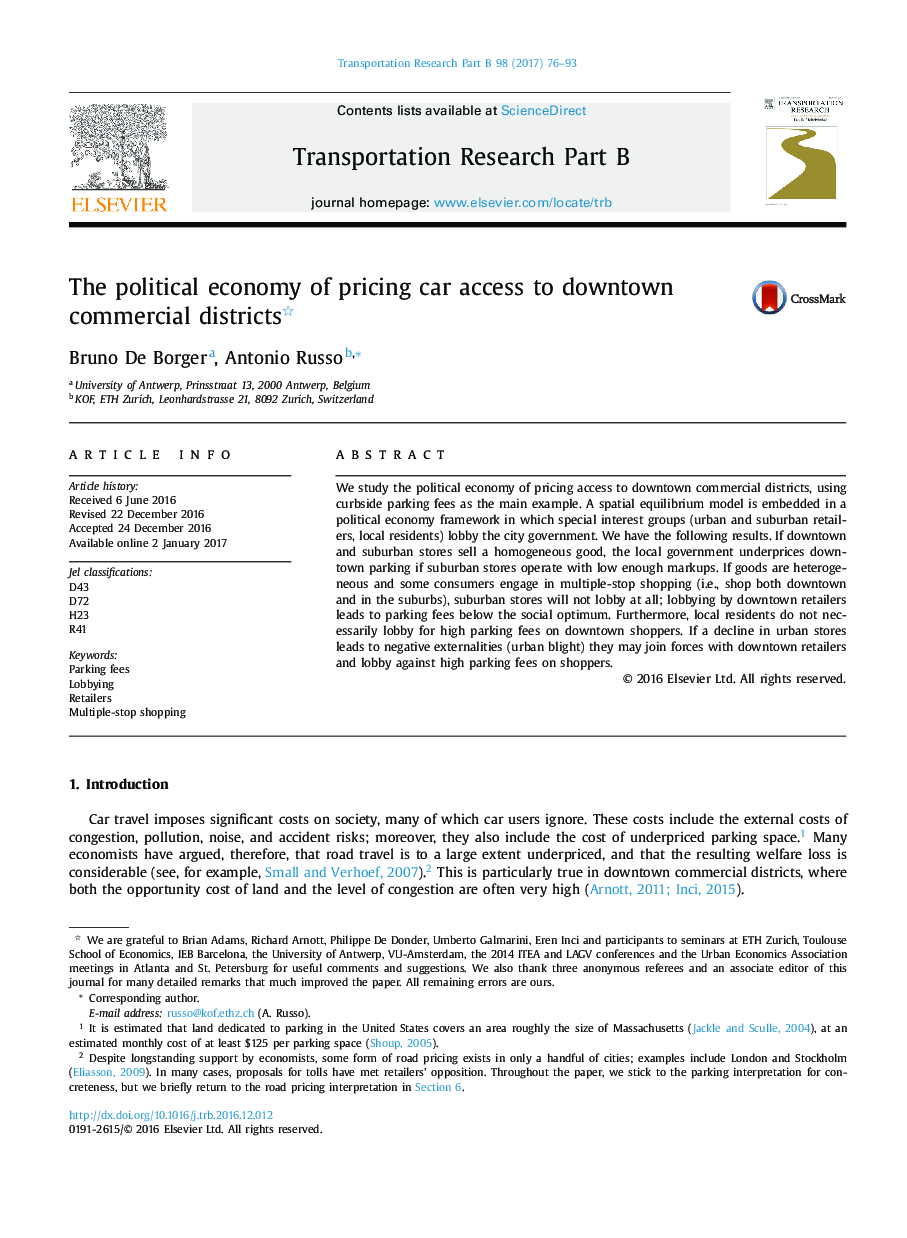| Article ID | Journal | Published Year | Pages | File Type |
|---|---|---|---|---|
| 5127117 | Transportation Research Part B: Methodological | 2017 | 18 Pages |
â¢We consider how local governments set curbside parking fees in commercial districts.â¢Downtown and suburban retailers lobby the government on parking.â¢Depending on the size of markups downtown and in the suburbs, parking may be underpriced.â¢When consumers engage in multiple-stop shopping, parking is always underpriced.â¢We extend the model to consider public transportation and lobbying by downtown residents.
We study the political economy of pricing access to downtown commercial districts, using curbside parking fees as the main example. A spatial equilibrium model is embedded in a political economy framework in which special interest groups (urban and suburban retailers, local residents) lobby the city government. We have the following results. If downtown and suburban stores sell a homogeneous good, the local government underprices downtown parking if suburban stores operate with low enough markups. If goods are heterogeneous and some consumers engage in multiple-stop shopping (i.e., shop both downtown and in the suburbs), suburban stores will not lobby at all; lobbying by downtown retailers leads to parking fees below the social optimum. Furthermore, local residents do not necessarily lobby for high parking fees on downtown shoppers. If a decline in urban stores leads to negative externalities (urban blight) they may join forces with downtown retailers and lobby against high parking fees on shoppers.
